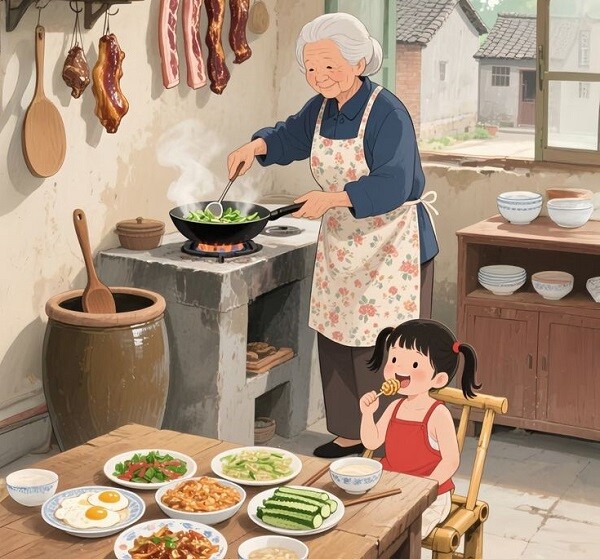Ensuring that children receive the best care, grandparents and relatives need to possess four essential qualities.


Grandparents’ Physical Health
As people age, their physical functions decline, and this is an inevitable reality. If grandparents are not in good health, it will not only affect their well-being but also make it more challenging to support and care for their grandchildren.
The interaction between grandparents and grandchildren is crucial for the children’s well-being. When grandparents are physically fit, they can actively engage in play, teaching, and imparting life lessons to their grandchildren.
Therefore, a balanced diet, regular exercise, and support from family members can help grandparents maintain their health. When grandparents are healthy, they can not only care for and play with their grandchildren but also contribute to a warm and happy family environment, where love and bonding thrive.

Willingness to Care for Grandchildren
While most grandparents adore their grandchildren and want to be involved in their lives, caring for young children requires a certain level of willingness and energy.
Lack of quality sleep can be challenging for older individuals and may lead to pressure and fatigue. If grandparents feel that their health or mental state is not up to the task, it is essential to respect their boundaries.
Forcing the issue may result in stress and discomfort for both grandparents and grandchildren. Instead, create opportunities for grandparents to engage in ways that feel comfortable and enjoyable. This could be as simple as spending time chatting, reading, or just sitting alongside the child, fostering a precious connection.
When grandparents feel comfortable and willing to engage, they provide a warm and loving environment that positively contributes to the children’s development.

Grandparents’ love and presence can make a significant difference in a child’s life.

Unified Parenting Philosophy
Having a unified parenting philosophy between grandparents and parents is crucial for maintaining a harmonious family environment. Open and effective communication is the key to achieving this harmony. When everyone shares similar views and approaches to child-rearing, children feel more loved and secure.
Differences in opinions and methods are inevitable when it comes to caring for children. These discrepancies may arise from varying parenting styles, cultural values, or life experiences across generations. While this is normal, what matters is how parents and grandparents handle these differences.
When challenges arise in childcare, parents and grandparents should be open to timely discussions to find solutions quickly. This approach fosters an environment where everyone listens, learns from each other, and works together to create effective solutions.

A unified parenting philosophy creates a supportive and loving environment for the child.
Sometimes, a gentle conversation can clear misunderstandings and create consensus in parenting styles. With support from both sides, children benefit from a wealth of values and experiences.
Strong family relationships, built on open and respectful communication, provide a solid foundation for children’s development. When grandparents and parents work together, children grow up in a loving and supportive environment, fostering their holistic development.

No Bad Habits
Lifestyle habits can significantly impact childcare. It is essential to avoid bad habits such as smoking, drinking alcohol, or using other stimulants in the child’s living environment. Secondhand smoke, the smell of alcohol, or a lack of sobriety can create an unsafe and potentially harmful environment for the child, both physically and mentally.
When grandparents provide childcare support, parents can focus on their careers, increase their income, and improve their family’s quality of life. This support enables parents to pursue their professional goals and build a solid financial foundation for the family. However, it is crucial to remember that the child’s development still relies on the parents’ involvement and presence.

Lifestyle habits can influence the childcare environment.
Parents play a vital role in providing not just material needs but also guidance, values, and life lessons. Their daily presence, whether through play, reading, or extracurricular activities, is essential in shaping their children’s character and cognitive development.
While grandparents can offer valuable support, parents must ensure they spend quality time with their children. This parental involvement creates a sense of security and love, forming the foundation for their children’s psychological well-being.






























